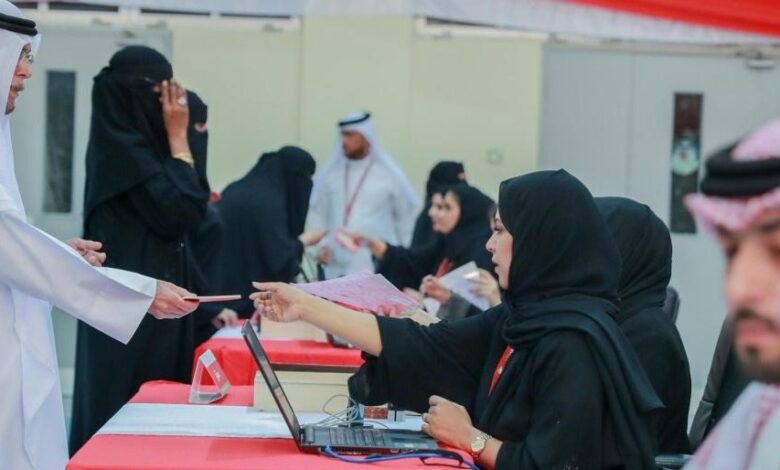Having in mind that a majority of the Bahrainis are opposed to Al Khalifa and find its stay in power not in the interest of the country, the rulers in the tiny Arab kingdom are seeking legitimacy using show elections. However, this goal is far from reachable as there is no competition amid the government distancing all of the opposition from the politics. Legitimacy makes sense when all political parties are allowed to freely compete. Al Khalifa rulers, however, stripped the country of any political competition. Additionally, the human rights state is catastrophic and this show election takes place under heavy rights abuses.
Bahrain’s electoral structure
Bahrain’s parliament, containing two houses, has a total of 80 seats, 40 elected and 40 appointed directly by the king. Having in mind that actually the 40 elected lawmakers are representatives of the ruling family, the parliament is powerless and is an utter implementer of the royal orders. According to the constitution, people choose the lawmakers for a 4-year term and the parliament bills and laws need the king’s ratification, otherwise inapplicable.
Despite the existence of the parliament, all of Bahrain’s legislative and executive institutions are officially controlled by the ruler and he has the last word. This dictatorship is so conspicuous that the king, Hamad bin Isa Al Khalifa, granted himself the right to unilaterally approve a new constitution, going against the terms of National Movement Chapter.
The monopolization of the power by the king comes as in recent years the people called for change of the constitution, only to be rejected to by the king as the sole decision-maker on the issue. Rewriting of the constitution means reducing the monarchy and the king’s power in all the home affairs which is against his will.
Everywhere in the world, the parliament has a duty of enacting laws but in Bahrain, ruled by a despotic regime, the parliament is the utter implementer of the ruler’s policies. Actually, the election in this country is a coat of democracy on an autocracy seeking to deceive public.
Calls for election boycott
Bahrain’s parliamentary elections, always a cheap show of democracy to legitimatize an abusive dictatorship, has always been opposed to seriously by the clergy as well as the revolutionary forces who always call for its boycott. Sheikh Issa Qasim, the country’s top Shiite leader, in a recent speech called the regime-engineered election a “disaster” for the people and said that the government will manipulate the results. Sheikh Qasim added that the election is a proof the people are isolated and their rights are hijacked. He called the participation in the election a kind of service to the oppression and injustice and hoped that those intend to vote "come to their senses and conscience perhaps they would back down from their decision."
Following his speech, the Shiites in Bahrain responded affirmatively and called for full boycott. February 14 Movement, a protest movement came to existence in 2011, issued a statement saying it boycott the vote. All groups agreed that the elections are fake and fraudulent. Activists of various factions in a forum arranged on Twitter said that the parliament with its current composition is a tool in the executive branch and called for its boycott.
The boycott by various political groups comes as since the country’s uprising against Al Khalifa in 2011, no optimistic political reforms were introduced by Manama rulers, pushing up the discontentment with the regime to new heights. Absence of a fair constitution guaranteeing the popular rights, absence of an independence justice system, continuation of Al Khalifa’s repressive policy, lack of a freedom of expression, systemic discrimination in the state institutions, and banning monitoring of the elections by independent groups are the main drivers behind the boycott.
Not ready to listen to an opposite voice, Al Khalifa repressed all of its opposition in the past decade and imprisoned their leaders to solidify pillars of its rule. Although the Shiites account of 70 percent of the population, they are deprived of securing political and state posts and the power is monopolized by a group the Bahrainis say imposed on them from abroad.
Given the widespread calls for boycott of the show
election, odds are the Al Khalifa rulers order a new round of crackdown
on the Shiite citizens that can trigger a new revolt ahead of the
elections, further revealing illegitimacy of Al Khalifa to the world.
/129

